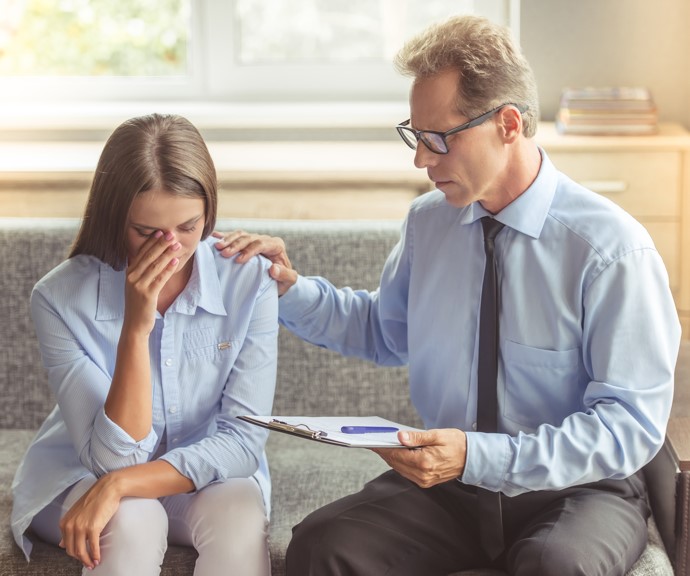Table of Contents

What is Emotional Rehabilitation?
For people suffering from drug and alcohol addiction, there is an obvious need for physical rehabilitation and an equally important, yet more subtle need for emotional rehabilitation. Emotional rehab is a process that involves a series of steps to work through the pain of loss and return to a healthy place. Feelings of loss often occur for those struggling with substance abuse when they realize how far removed they are from their previous life. For some who have completed physical healing through drug and alcohol rehab, emotional rehab is a supplementary tool that will help them further avoid future relapse, as it addresses the root of addiction and not just the symptoms. However, emotional rehabilitation isn’t just for addicts, those who witness their loved one battling an addiction and not seeking help can also experience loss and benefit from this treatment. According to PsychCentral’s article, Emotional Rehabilitation: Recovery Loss, a person must exercise their emotional muscles in their heart and mind to help them learn how to cope in future stressful or emotionally intense situations. As that person strengthens their emotional core, they will be more apt to face life’s challenges through a renewed sense of confidence, determination, and competence. United Recovery Project is a drug and alcohol treatment center that offers a variety of resources and programs including emotional rehabilitation through the latest therapy techniques.
The Reality of Emotional Rehab
Emotional rehabilitation is a lot harder than it sounds. Most of us learn about our emotions from a young age but don’t get a perfect handle on them. At some point in our lives, we face situations where we feel like we’ve lost control of our emotions or would rather numb the emotions that make us feel uncomfortable with substance use rather than learn how to cope in a healthy way. In an emotional rehab program, you’ll start by learning how to recognize what you’re feeling. Rather than give in to your automatic reaction when you start feeling uneasy, you’ll be forced to tune into what you’re actually feeling and admit to yourself why you’re feeling that way. While this process can be difficult, the reward is worth it. Once you’ve learned how to identify your thoughts and emotions correctly, you can begin to address where those thoughts are coming from and deal with them appropriately.
The Process of Emotional Rehab
Here’s an overview of an exercise you might perform during emotional rehabilitation:
- Let yourself relax and give yourself permission to cry when thinking about a recent experience that upset you. Instead of trying to avoid the feeling or analyze it right away, just let yourself feel it completely. As you feel, pay attention to how your body reacts. If you notice tension or resistance in any area of your body, (head, neck, chest, fists, etc.) release the tension as much as possible.
- Don’t rush the process. Let yourself feel for as long as you need to, without any judgment. If you start to sob and can’t stop, that’s ok. Let yourself feel fully without interruption. Then ask yourself why you’re feeling this way. This is identifying your feelings.
-

The Best Rehab Centers for Emotional Rehab
Through practice, exercises, and the support of your therapist, you’ll learn ways to deal with your feelings once you’ve fully identified and experienced them. When you use the tools you’re given to deal with your feelings; you’ll no longer bottle them up, try to numb them, or lash out at a loved one.
- Once you’ve completed emotional rehab, you’ll be equipped to handle any emotion and situation with confidence and a positive self-image. Your emotions, attitude, and behavior will be healthy and serve you throughout your life.
The Best Rehab Centers for Emotional Rehab
Emotional rehab is different than drug and alcohol treatment, but it is usually offered at specialized substance abuse rehabilitation centers, like United Recovery Project. Located in Hollywood, Florida, United Recovery Project accepts any who wish to begin the healing process, both physically and emotionally. Through our evidence-based programs and up-to-date therapy methods, we’ll help you or a loved one get to the root of your battle with addiction and strengthen your ability to cope in the future. Through our alumni program, you’ll have access to support communities long after you’ve graduated from our program and you’ll be able to support others who face the temptation to relapse after a period of sobriety. We know that true healing is a process that can take years to complete. That’s why we believe in providing relapse prevention education accompanied by emotional rehab and consistent support groups. Learn more about how we can help you in your lifelong mission to continually learn, grow, and progress by contacting a United Recovery Project treatment consultant today.
Resources and References
https://www.unitedrecoveryproject.com/
https://www.unitedrecoveryproject.com/contact-us/


